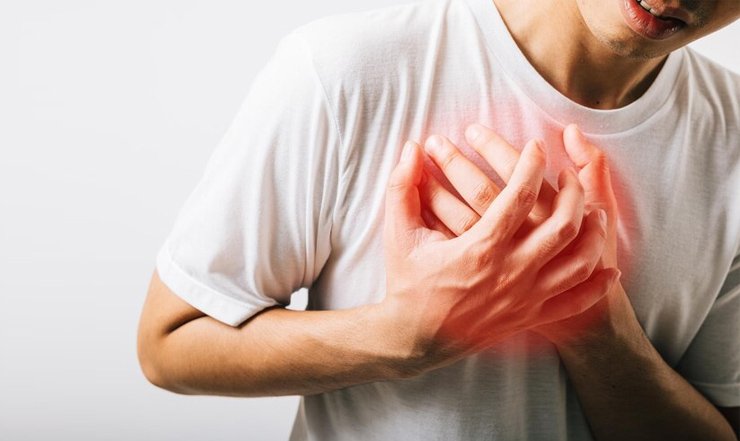Knowing the signs and symptoms of a heart attack is crucial for getting timely medical treatment. By recognizing the symptoms early, you can seek help from a cardiologist in Bangalore at the best hospital for cardiac treatment in Bangalore and prevent irreversible heart damage. Let’s take a closer look at the common symptoms and what you should do if you experience them.
Chest Pain or Discomfort
One of the most common signs of a heart attack is chest pain or discomfort. The chest pain caused by reduced blood flow to the heart is often described as pressure, squeezing, fullness, or pain in the center of the chest that lasts for more than a few minutes. It may also radiate to the shoulders, arms, neck, jaw, or back. It is important not to ignore chest pain and consult a cardiologist.
Other Upper Body Pain
A heart attack can cause pain or discomfort in other areas of the upper body. Many patients experience pain in the arms, neck, shoulder, back and jaw. If these symptoms persist or return, even if you’re feeling better, don’t delay reaching out to a cardiologist in Bangalore immediately.
Shortness of Breath
Patients may experience sudden shortness of breath, especially while doing physical activities or when lying down. This occurs because the heart is not pumping enough oxygen to the lungs. Seek emergency medical help if shortness of breath occurs along with other symptoms of a heart attack.
Nausea and Vomiting
Feeling nauseated or vomiting can be an accompanying symptom of reduced blood flow and oxygen to other organs like the stomach. Consult with a doctor as soon as possible if you experience nausea and vomiting along with chest pain or tightness.
Sweating
Unexplained drenching sweats with no apparent cause is another potential warning sign, especially in severe attacks. Call for an ambulance without any delay if you notice profuse sweating.
Fatigue and Weakness
You may feel extreme tiredness or weakness before, during and after a heart attack. It occurs due to decreased blood flow and oxygen supply to working muscles and tissues. Don’t hesitate to call for emergency help if you feel unusually tired or weak.
Rise in Heart Rate
Palpitations or a racing heartbeat may indicate a possible heart attack. Your pulse can often rise to between 80 to 100 beats per minute. Seek help if it rises abruptly with accompanying symptoms like chest pain or shortness of breath.
What to do when you notice symptoms?
If you experience any of these signs, especially chest pain or pressure, do not ignore it. Call for an ambulance immediately and reach the emergency department of the best hospital in Bangalore which has advanced cardiac care facilities for cardiac treatment in Bangalore. The cardiologist will evaluate symptoms and perform necessary tests like ECG and blood tests to diagnose a heart attack. Early treatment can prevent permanent damage and save lives. Hospital is crucial for advanced care like angioplasty or thrombolysis if needed. Don’t delay in seeking urgent medical care.
Final Thoughts
Remember, it is always best to be safe and get evaluated by a cardiologist if you experience any of these symptoms, even if for a short duration. Acting quickly during a heart attack can help limit injury and increase survival. Amrutha Hospital is one of the top hospitals in Bangalore providing comprehensive cardiac treatment. Their experienced cardiologists ensure the best outcome. Make yourself aware of the signs and have a cardiac action plan in place for emergencies. Early recognition is the key to beating a heart attack.

